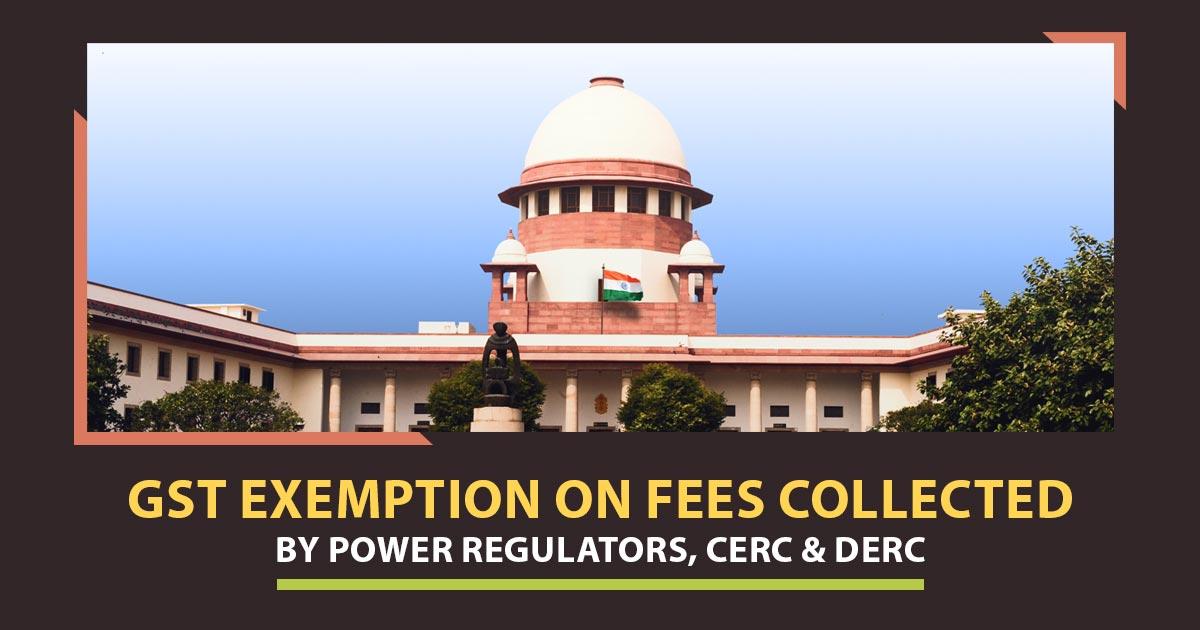
In a significant development for regulatory authorities, the Supreme Court has affirmed the Delhi High Court’s decision stating that the fees charged by the CERC and the DERC for electricity supply, the granting of electricity distribution licenses, and other related annual fees are exempt from Goods and Services Tax (GST).
This ruling provides clarity on the taxation of these fees and offers relief to regulatory bodies overseeing electricity distribution.
In January, the High Court ruled to invalidate the show cause notices (SCNs) issued by the Directorate General of GST Intelligence, which had demanded an 18% tax on fees collected by the Central Electricity Regulatory Commission (CERC) and the Delhi Electricity Regulatory Commission (DERC) for their regulatory duties.
The Court deemed these demand notices as arbitrary and unsustainable. A Supreme Court bench, consisting of Justices J.B. Pardiwala and R. Mahadevan, expressed agreement with the High Court’s perspective, stating there were no substantial grounds to consider the special leave petitions presented by the Directorate General of GST Intelligence.
They highlighted that the GST department had overlooked the critical fact that the agencies in question were performing their roles as quasi-judicial bodies, which function with the attributes of a tribunal.
The order of the High Court has been contested by the department, alleging that the authority regulators were not releasing their GST obligations on the obtained amounts as tariff and licence fees via distinct power utilities, as these operations of the regulators come within the class of support services to electricity transmission and distribution service providers.
In the show-cause notice, the GST authorities alleged that CERC has been unable to perform a correct self-assessment of its tax obligation; therefore, it has failed to release its integrated GST of Rs 113 crore between April 2019 to March 2023.
The same notice was issued before the Delhi power regulator. But the HC denied the GST authorities’ stand for being unable to accept, affirm, or even fathom the conclusion that regulation of tariff, inter-state transmission of electricity, or the issuance of a licence would be accountable to be construed as activities undertaken or functions released in the furtherance of business.
In furtherance of business or trade, the grant of a licence to transmit or distribute (electricity) is not present, but in extension of the regulatory liability placed on a commission to control those subjects, the HC cited.
Read Also: What If Electricity Comes Under GST in India?
No distinction is made under the Electricity Act 2003 between the statutory and adjudicatory functions granted in and conferred upon an electricity commission, it quoted. Before a quasi-judicial body, those functions are placed enjoined to control of electricity distribution, it added.
Electricity is a natural resource which vests in the State. No hesitation is there in observing that the SCNs (show cause notices) violate the borders of the incredible and inconceivable, the January order stated.








